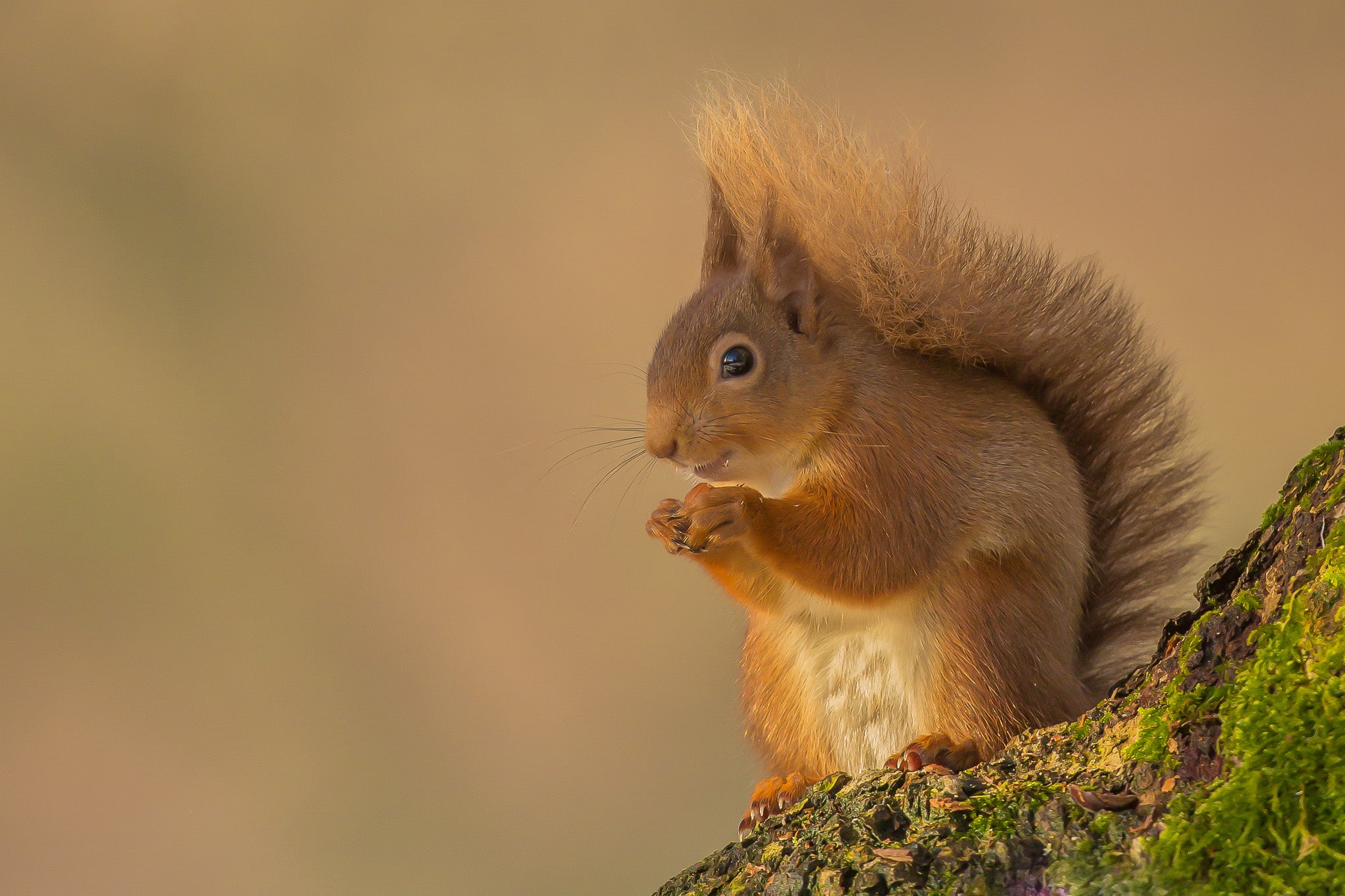£1.1m ‘booster’ for campaign to save red squirrels
Saving Scotland’s Red Squirrels has secured additional funding of £1.1 million for a two-year extension through to 2024.

A scheme to boost the numbers of red squirrels has been awarded £1.1 million in further funding, the Scottish Wildlife Trust (SWT) has announced.
The money to extend the Saving Scotland’s Red Squirrels (SSRS) project from April 2022 to March 2024 is in addition to £2.45 million of lottery funding which was awarded in 2017.
An SWT spokesperson said this “booster” phase will enable the project to complete its aims and plan for the long-term future, leaving a legacy of sustainable and community-led red squirrel conservation across the south of Scotland.
Thanks to the hard work of our staff, volunteers, landowners and partners we’ve seen some fantastic success stories in the past five years.
SSRS is a partnership project led by the Scottish Wildlife Trust and includes NatureScot, Scottish Forestry, Scottish Land & Estates, RSPB Scotland and the Red Squirrel Survival Trust.
Project manager Dr Mel Tonkin said: “Thanks to the hard work of our staff, volunteers, landowners and partners we’ve seen some fantastic success stories in the past five years.
“But the project has also faced challenges, particularly due to the impact of Covid-19.
“During lockdown much of our grey squirrel control and survey work was suspended.
“This additional two years will help us further secure the red squirrel’s place amongst Scotland’s special native wildlife.”
An SWT spokesperson added that grey squirrels continue to pose the greatest threat to red squirrels in Scotland.
They are an invasive species introduced to Britain from North America in Victorian times and out-compete reds for food and living space.
Greys have rapidly replaced native red squirrel populations across most of England, Wales and Scotland’s Central Belt.
Grey squirrels can also carry squirrelpox, a virus that does not harm them but is deadly to reds.
In the north-east, the project has worked towards the removal of an isolated population of grey squirrels that was introduced to Aberdeen in the 1970s and spread to the surrounding countryside.
Today, grey squirrels are largely limited to the centre of the city and “eradication is considered achievable”.
In the Central Lowlands, grey squirrels are successfully being prevented from spreading north of the Highland Boundary Line, protecting Scotland’s core red squirrel populations in the Highlands and Grampian.
Ongoing work in this region is essential, as evidenced by recent grey sightings in Aberfeldy.
One of the project’s key aims is to build a network of local volunteers in priority areas across the south of Scotland.
The aim is to upskill these volunteers to enable them to continue red squirrel conservation work after the project comes to an end.
Since the project started there are 18 volunteer groups operating successfully across the region.
Whilst some groups are ready to proceed with little further support from the project, others require further support to enable them to become fully community-led.
Scottish Wildlife Trust chief executive Jo Pike added: “We’re delighted to have secured funding to enable the two-year transition phase to take place.
“The strength of the collaboration between partners, the quality of the data and evidence gathering, and the extraordinary contribution from volunteers have all combined to make this a project that is rightly viewed as an exemplar of invasive non-native species control.”
The project has also focused on public engagement at local and nationwide level, with more than 1,000 people reporting squirrel sightings online as part of September’s third annual Great Scottish Squirrel Survey campaign.
Bookmark popover
Removed from bookmarks